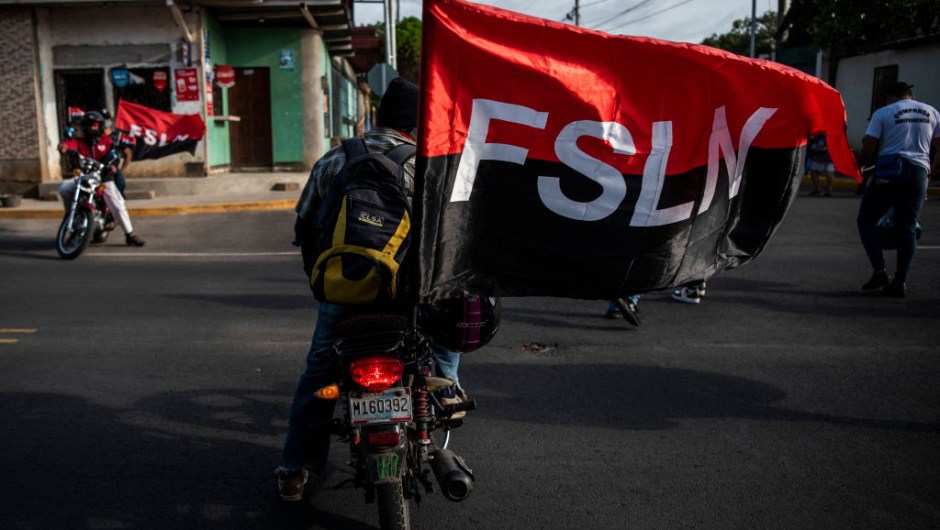Members of the Sandinista Youth participate in a march on July 18, 2021 in the Altagracia neighborhood of Managua to celebrate the 42nd anniversary of the triumph of the Sandinista Revolution and the departure of the dictator Somoza in Managua.
(INTI OCON / AFP Photo) (INTI OCON / AFP Photo via Getty Images)
(CNN Spanish) -
Sympathizers of the Sandinista front celebrate this Monday, July 19, the 42nd anniversary of the triumph of the Sandinista Revolution, which overthrew the dictatorship of Anastasio Somoza Debayle.
The celebration takes place on the eve of an uncertain electoral process, marked by the arrest of 26 prominent opponents, including 6 presidential candidates, and 3 iconic ex-guerrillas of the movement that came to power in 1979, who are being investigated for alleged treason.
The OAS, the United Nations, the European Parliament and national and international human rights organizations have asked since last June for the immediate release of all, without there being an official response so far.
The events began on Sunday night with a vigil, where hundreds of attendees listened to revolutionary music and appreciated fireworks on the Managua boardwalk, located in the historic center of the city.
The vice president and government spokesperson, Rosario Murillo, told official media on Friday that more than 5,000 cultural and recreational activities, concerts, and piñatas for children were scheduled to celebrate "big" throughout the country.
Flags of the ruling party were placed in all public offices.
advertising
"Thanks to Dos for this revolution that has represented struggles and victories for national dignity," said Murillo.
Some of the leaders of the Sandinista Revolution such as Hugo Torres, Víctor Hugo Tinoco and Dora María Téllez have been in prison for more than a month, investigated for alleged acts against national sovereignty while Nicaragua is experiencing a socio-political crisis that began with the protests of April 2018 and now under a coronavirus pandemic.
Josefina Vigil, sister and aunt of two opposition women arrested in June, expressed this Monday on her social networks:
"It is impossible to commemorate a feat that had in its roots (although later it has been distorted) the demand for freedom and justice while it is repressed, imprisoned and censured. Aberrant human rights violations accumulate in the cases of each of the more than 134 political prisoners ".
"We have not even heard from Tamara Dávila and Ana Margarita Vigil in five weeks (36 days). Not even their lawyers or the Red Cross have been able to see them. We demand immediate release of the +134!", The educator reiterated in her twitter account.
OAS Secretary General Luis Almagro reiterated on Monday his call for the release of opponents.
"I met with Bertha Valle and Victoria Cárdenas, we condemned the imprisonment of their husbands Félix Maradiaga and Juan Sebastián Chamorro and demanded their immediate release, as well as that of the other political prisoners in Nicaragua whose human rights have been violated."
On July 19, 1979, the Sandinista front troops entered Managua, two days after President Anastasio Somoza Debayle fled to Miami.
The so-called government council for national reconstruction assumed control of the country and promoted changes in the political, social and economic sphere of the country.
The leaders of the revolution sought to create a system based on human rights, economic development, with social justice, and greater equity in the distribution of wealth.
These intentions, according to some leaders of the revolution such as Hugo Torres, now detained, were distorted due to hegemonic and tax attitudes of some leaders and the emergence of an armed conflict financed by the United States and the Soviet Union, which caused a deep economic crisis. , thousands of deaths and the division of Nicaraguan families during the 1980s.

